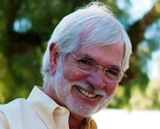When the CIA engineered the overthrow of the democratically elected prime minister of Iran in 1953 in favor of the more compliant Shah, who would have ever thought that 26 years later the nation’s youth would invade our embassy and take our diplomats as hostages? When our president’s national security advisor instigated secret support for the Afghanistan Mujahideen the same year in their resistance against the Russian army, who would have imagined that 22 years later one of the Mujahideen leaders, Osama bin Laden, would direct the 9-11 attacks on America? When the U.S. invaded Iraq in 2003 without just cause, who could have foreseen that five years later as many as a million Iraqis have been killed, tens of thousands of American soldiers have been grievously wounded or died, more than a trillion tax dollars have been wasted, and our troops are still not welcomed as liberators? When the CIA and the U.S. ambassador secretly engineered the “Rose Revolution” in Georgia in 2003 and after the U.S. encouraged the Israeli-trained Georgian army to invade the disputed enclave of South Ossetia five years later, who could have predicted Russian peacekeepers would be killed causing Russia to invade Georgia and overrun its lilliputian army provided by U.S. taxpayers? The only thing for certain to result from all such Machiavellian maneuvers is chaos, pure chaos.
The classical theory set forth in Chaos: Making a New Science by James Gleick in 1987 is that “a butterfly stirring the air today in Peking can transform storm systems next month in New York.” Basically, any attempt to accurately discern outcomes from discrete and random inputs is much like reading entrails or trying to guess which card will be dealt after God reshuffles the deck “under the table” after each hand.
From a political standpoint, chaos theory requires us to consider the effect of a vice president flapping his lips on an aircraft carrier in the Persian Gulf or in the former U.S.S.R. republic of Georgia on starting World War III or Cold War II.
In May 2007, Vice President Cheney threatened that, “With two carrier strike groups in the Gulf, we’re sending clear messages to friends and adversaries alike, we’ll keep the sea lanes open.” And, “We’ll stand with others to prevent Iran from gaining nuclear weapons and dominating the region.”
Last week, Cheney belligerently stated, "America will do its duty to work with the governments of Georgia and our other friends and allies to protect our common interests and uphold our values."
Given the fact that between them, Iran and Russia control a substantial portion of the world’s oil and natural gas reserves, it would seem such bellicosity can only have dire consequences for those of us whose petroleum supplies are running thin and whose military is dangerously overextended.
With the presidential election only a few weeks away, and the candidates all trying to out-tough the others by threatening war against Iran and Russia or promising to “finish the job” in Afghanistan by invading Pakistan, a brief discussion of how an application of chaos theory could improve the practice of politics might of interest.
Seeking Order Within Chaos
Although the systems being studied, such as the weather, may appear at first to be disordered, chaos theory seeks to identify the underlying order in the apparently random data.
Meteorologist Edward Lorentz first experimented with the theory in 1960 as he worked with twelve computerized equations to model the weather. He observed that a tiny, statistically insignificant, difference in the starting value resulted in a wildly different weather pattern at the end. Thus, while the flapping of a single butterfly’s wings only produces a tiny change in the local atmosphere, over a period of time, the world’s climate may be dramatically different from what it might have otherwise been.
In addition to the weather, a variety of systems exhibit chaotic behavior, including fluid dynamics, lasers, electrical circuits, and population growth. However, these systems are not entirely disorderly and they lend themselves to a degree of mathematical order and determination.
Unfortunately, there are no existing mathematical formulas to help predict the consequences of political words, decisions, and actions; however, it might be rewarding to at least have a basic set of standards to improve the reliability of political practice.
Political Commandments
The Ten Commandments have existed for more than 3,500 years as an ethical guide for human behavior and are recognized by all three of the major monotheistic religions, Judaism, Christianity, and Islam. Whether or not one is a believer, the Commandments provide a commonsense guide to avoid adverse consequences in most decision making and conduct.
In order to reduce political chaos, the following suggestions are offered as discussion points for establishing a basic set of political standards. Certainly, if these standards were being commonly adhered to, the irrelevant and random noise of the current presidential campaign might be reduced and we would hear less about lipstick on pigs and more about the critical issues facing our country in the next four years.
I. Have no master before you except those who elect you. Never forget whose trust you hold. Only citizens of the United States can vote in its elections, and corporations, irrespective of wealth and power, are not citizens.
(Note: You can view every article as one long page if you sign up as an Advocate Member, or higher).





